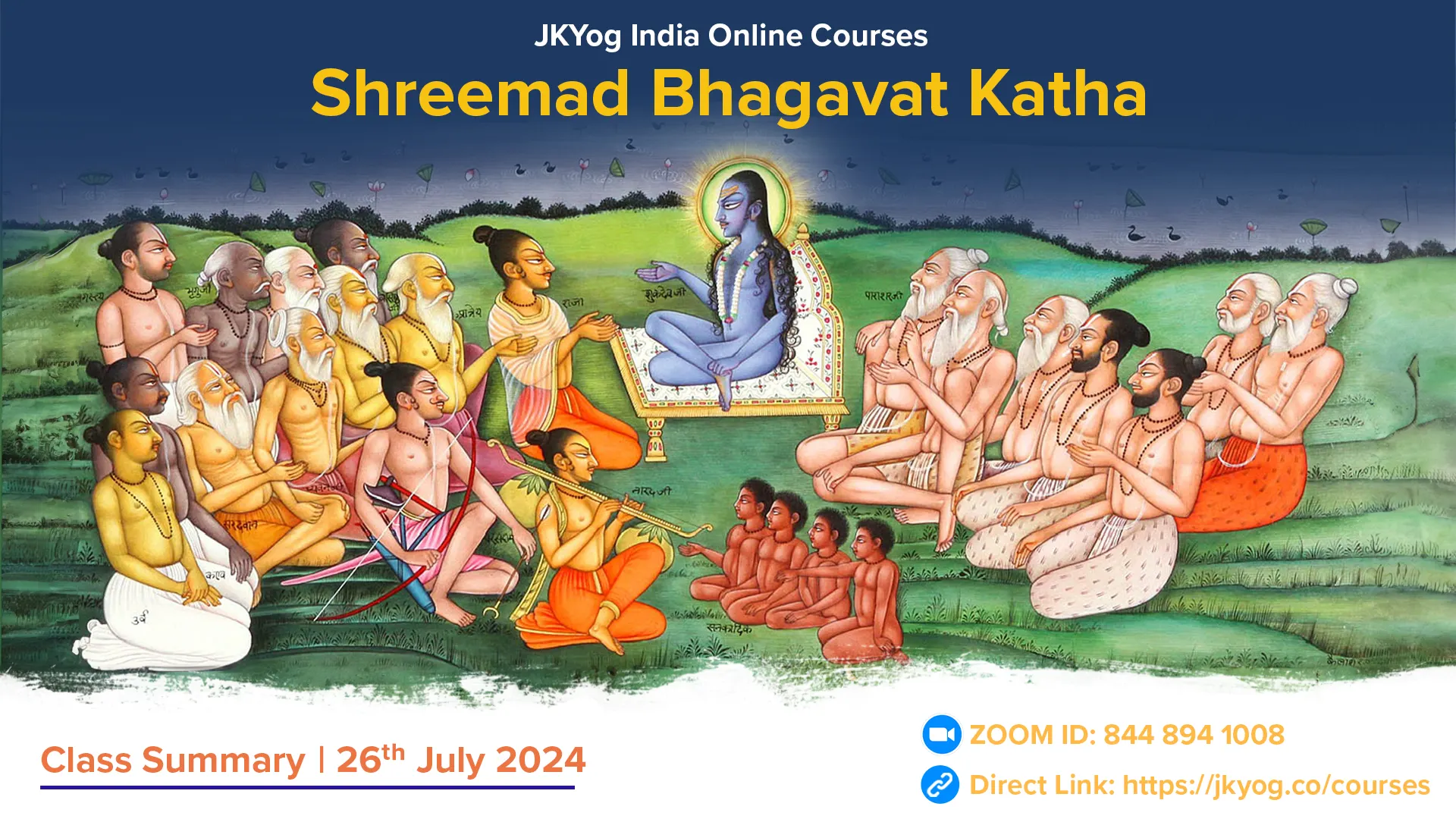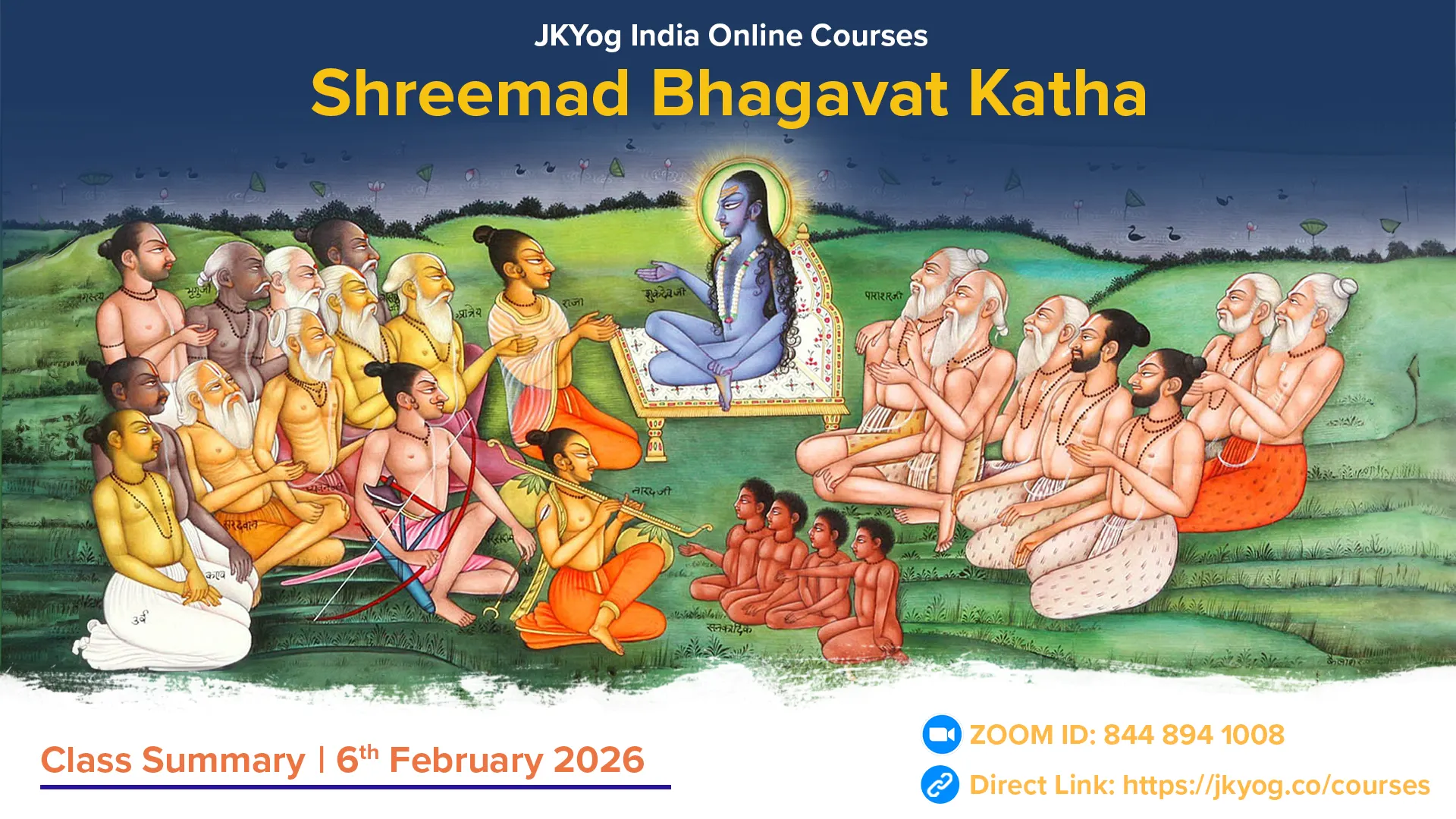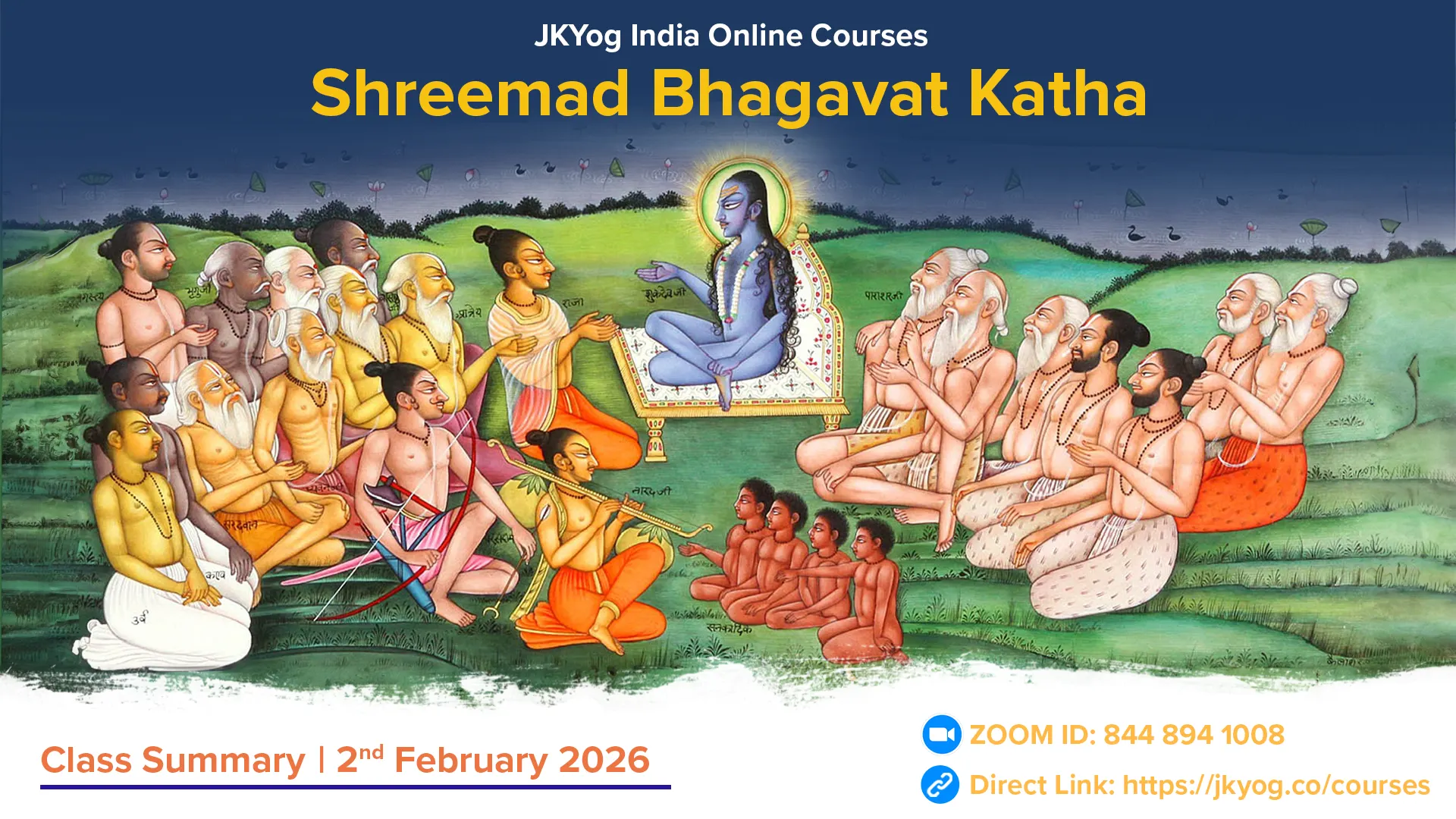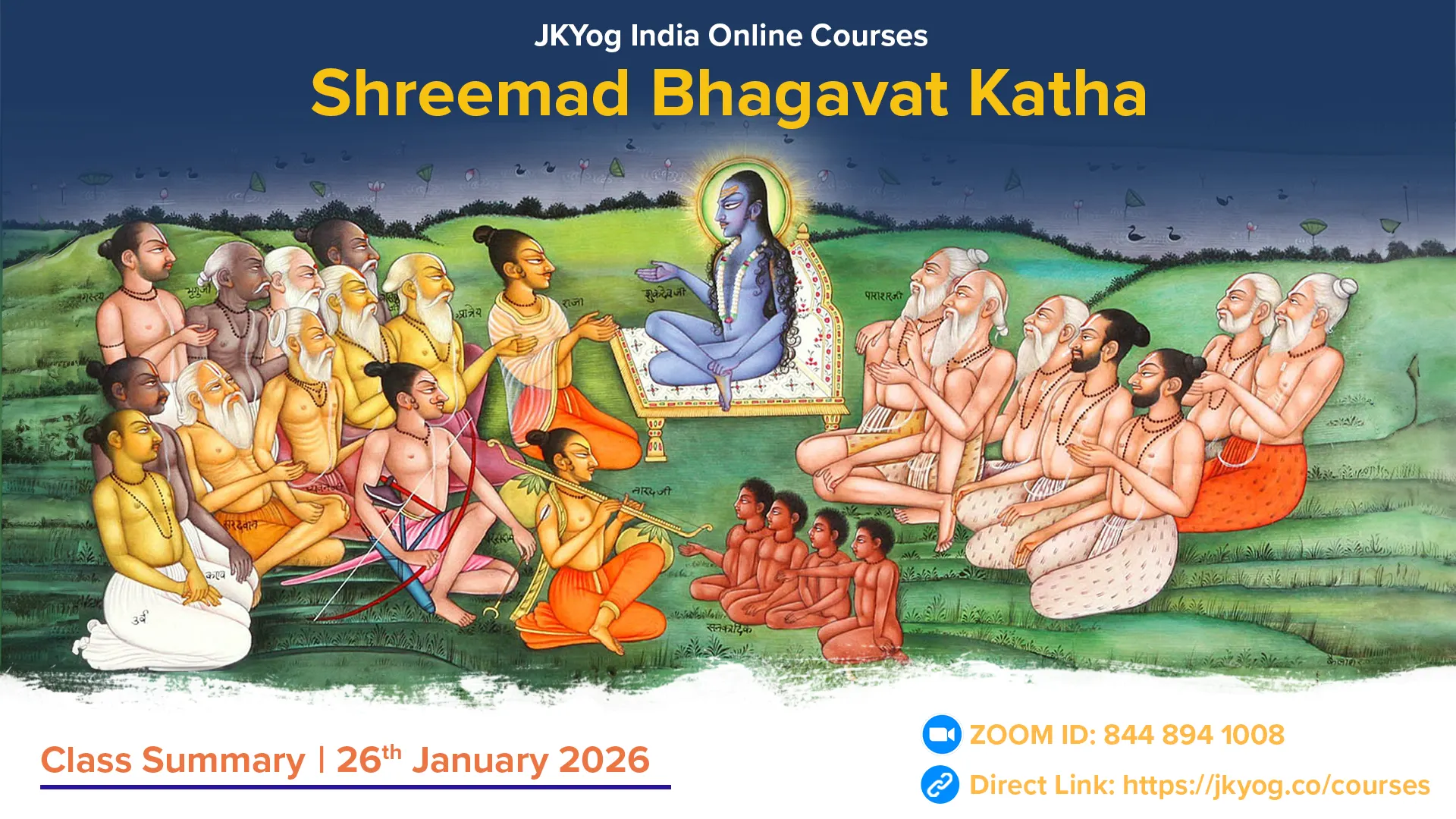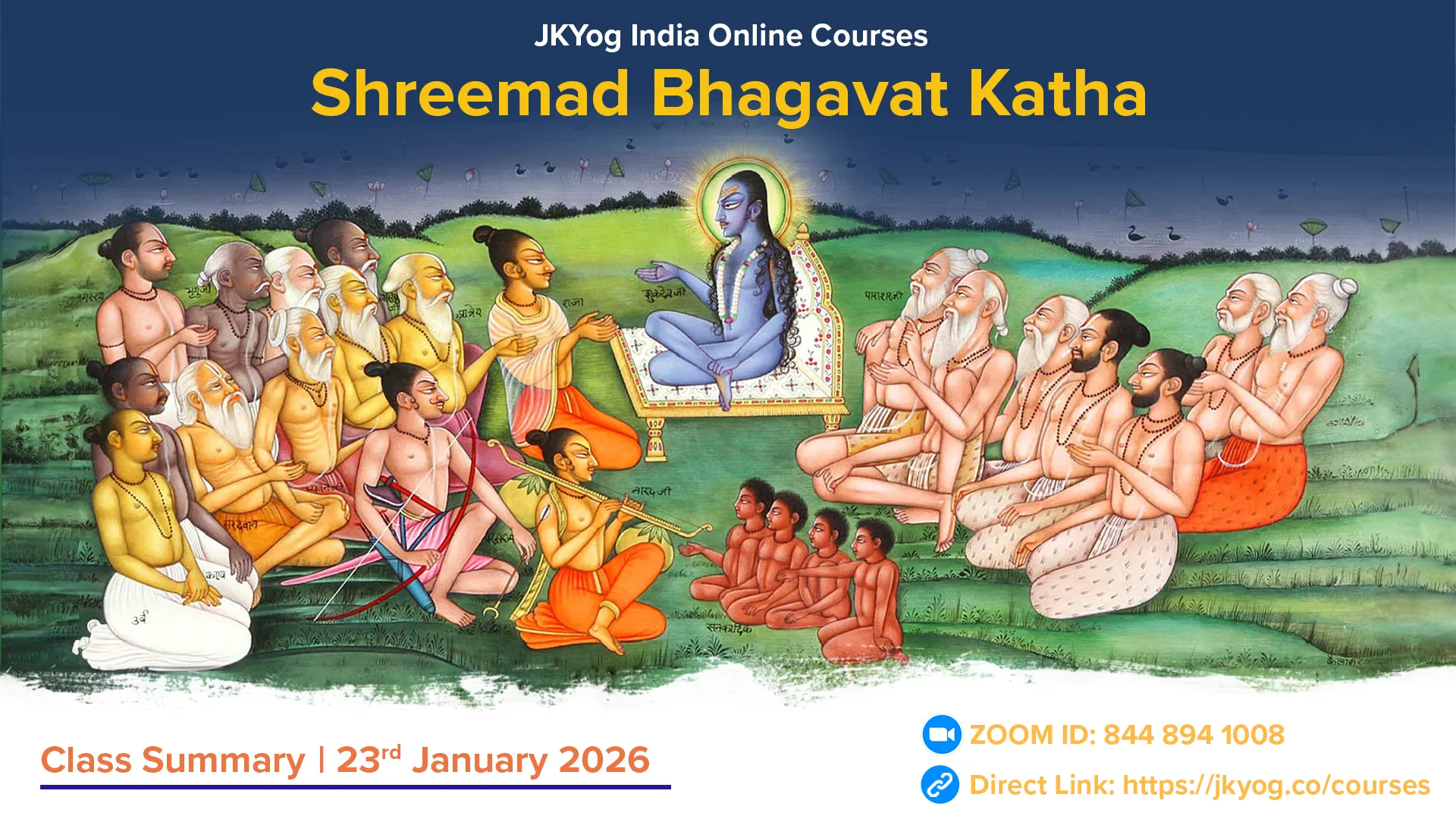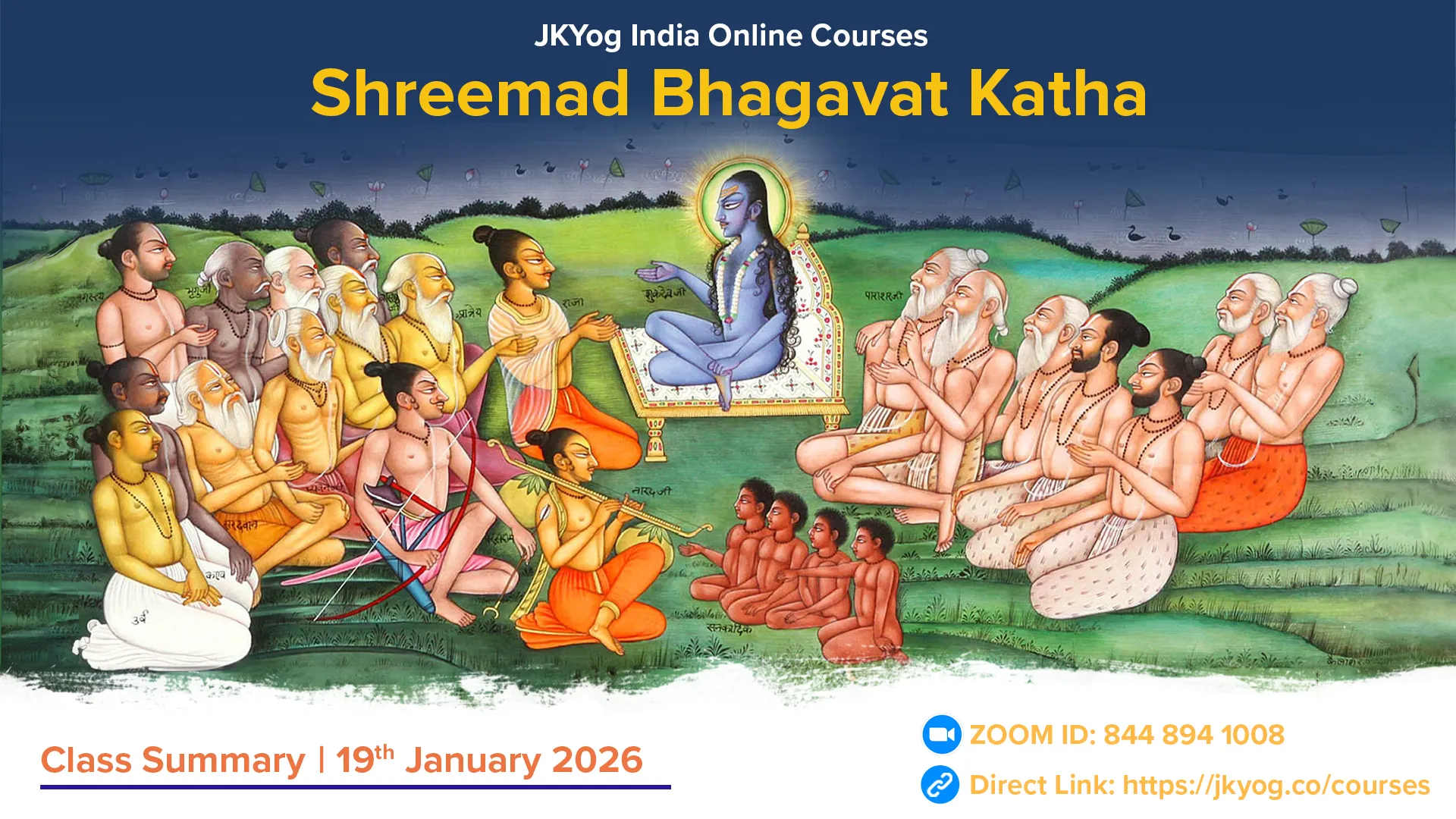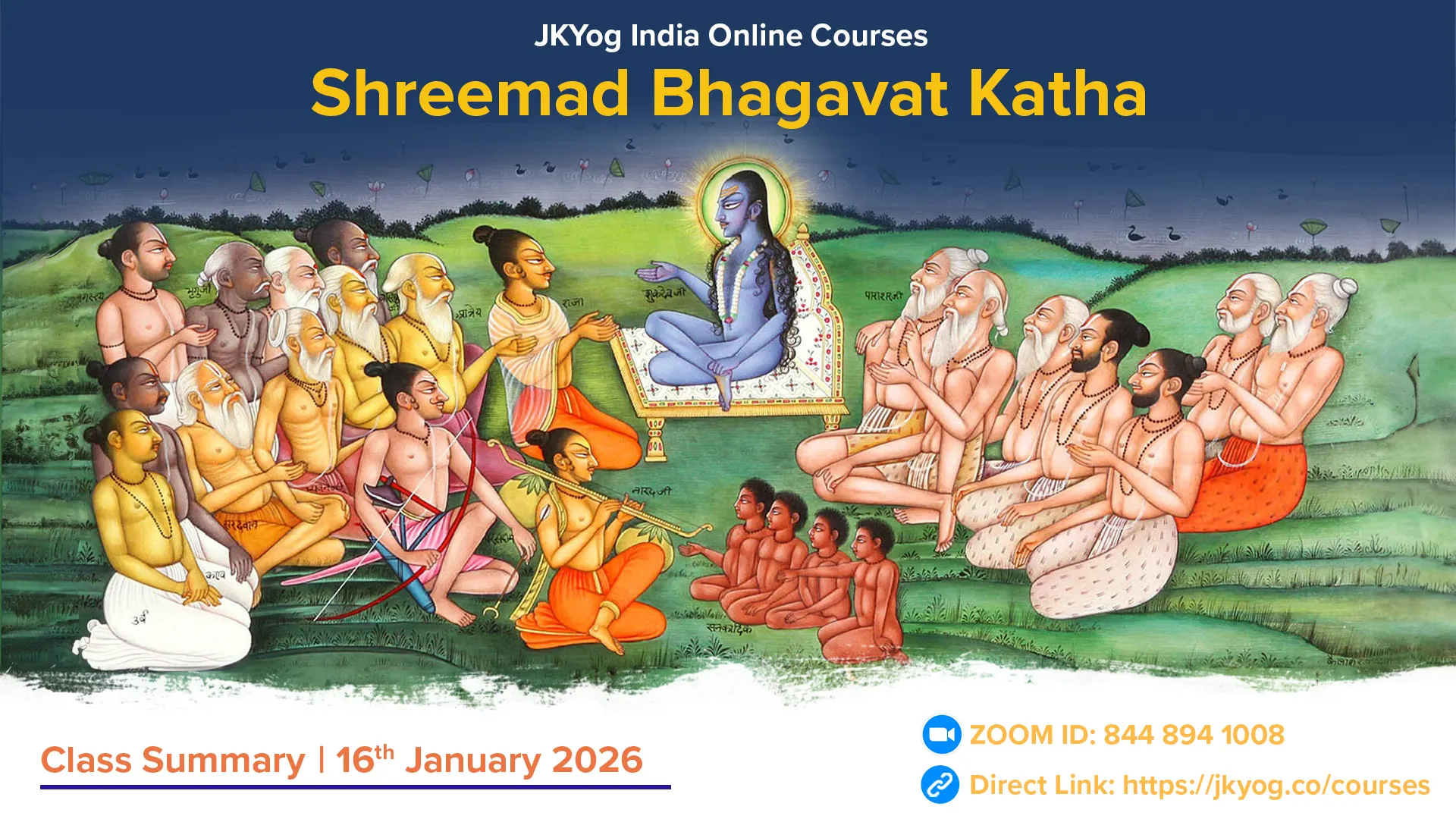Shreemad Bhagavat Mahapuran- Canto: 1, Chapters: 18 and 19
After granting Kali five places to reside, King Parikshit begins to take care of his subjects. One day, he hunts in the forest, carrying a bow. After chasing deer for a long time, Parikshit becomes tired, extremely hungry, and thirsty. When he cannot find water anywhere, he enters a nearby Rishi's ashram. He sees a Rishi sitting peacefully, his eyes closed, immersed in meditation. The Rishi has transcended the world by controlling his senses, breath, mind, and intellect. His body is covered with matted locks and a deerskin.
In this state, King Parikshit asks the Rishi for water. However, when the king does not find even a straw mat to sit on, and no one invites him to sit on the ground, he feels insulted and angry. He thinks that the Rishi, who has kept his eyes closed, is either genuinely in a deep state of meditation or is pretending to be in a trance, thinking, "What do we have to do with these kings?"
It is, no doubt, the influence of Kali that makes even a noble king like Parikshit feel anger and insult. On his way back, in a fit of rage, Parikshit lifts a dead snake with the tip of his bow and places it around Rishi's neck before returning to his capital.
The Rishi Shamik's son, Shringi, plays nearby with other young Rishis when he hears about the king's misbehaviour with his father. The young Rishi, with eyes red and angry, curses Parikshit.
Iti langhitamaryadam takshakah saptame’hani
Dankshyati sma kulangaram chodito me tatadrugham.
Meaning: "Since the offender Parikshit has dishonoured my father and violated the limits of propriety, by my prompting, on this seventh day, the serpent Takshak will bite him." (Bhagavat 1-18-37)
After this, Rishikumar returns to his ashram. Upon seeing the snake around his father's neck, he becomes very sad and starts crying loudly. Hearing his son crying, Rishi Shamik slowly opens his eyes and sees the dead snake around his neck. He throws it away and asks his son, "Son, why are you crying? Who has wronged you?" Upon being asked, the boy narrates the entire incident.
Brahmarshi Shamik disapproves of his son's action. In his view, Parikshit does not deserve such a curse. He says, "Oh, foolish child! You have committed a great sin! It is regrettable that you have given such a severe punishment for a minor mistake. Your understanding is still immature. Parikshit is very illustrious and a great upholder of dharma. He is a dear devotee of Bhagawan. It was he, the great king, who came to our ashram, distressed by hunger and thirst, and he is certainly not deserving of a curse. This ignorant boy has wronged our blameless king. May Bhagawan forgive him."
Even Bhagawan's devotees have the power to take revenge, but they do not retaliate for the insults, deceit, abuse, accusations, or assaults they face from others. The great Rishi Shamik feels deep remorse for his son's offence. He does not even pay attention to the insult inflicted upon him by King Parikshit. The nature of great souls is such that they usually remain neither elated nor distressed even when others subject them to the dualities of joy and sorrow.
Dari naag rishi kanth mein, nrip ne keenho paap
Honhaar ho kar huto, Shringi deenho shaap
Meaning: The king committed a grave sin by placing a serpent around the Rishi's neck. No one can escape their destined fate; consequently, Rishi Shringi cursed him.
Meanwhile, upon reaching his capital, King Parikshit feels deep remorse for his reprehensible action. He becomes extremely sad and thinks, "I have behaved despicably towards an innocent Brahmin. This is a matter of great regret. Surely, a terrible calamity will soon befall me as a result of insulting that great soul. I also desire this because it will atone for my sin, and I will never dare to commit such an act again. May the fire of the Brahmin's wrath burn my kingdom, army, and abundant treasury to ashes today so that I, a wicked person, never again harbour such sinful thoughts towards Brahmins, deities, and cows."
As he contemplates this, he learns that due to Rishi's son's curse, Takshak will bite him. This impending, fiery bite from Takshak seems very welcoming to him. He thinks he has been attached to worldly life for a long time and now has found a reason to renounce it. He has always considered the enjoyments of this world and the next to be insignificant and worthy of renunciation from within. Now, by formally renouncing them from the outside, he considers serving the lotus feet of Bhagawan Shree Krishna as his ultimate duty. Taking a vow of fasting unto death, he sits on the bank of the Ganga. In King Parikshit's mind, there is no malice, ill-will, or desire for revenge against the one who cursed him, nor any attachment to his thriving kingdom and life.
Soi pandit soi parakhi soi sant sujan
Soi soor sachet so soi subhat pramaan
Soi gyani soi guni jan soi daata dhyani
Tulsidas jake chit bhai raag dvesh ki haani
Meaning: Tulsidasji says that the one who has eradicated attachment and aversion from their mind is the true scholar, the real judge of right and wrong; that person is the wise saint, the brave hero, the vigilant one, the genuine warrior, the knowledgeable, the virtuous person, the true giver, and the yogi.
Many great Rishis and seers who purify the three worlds arrive then with their disciples. Saints usually sanctify pilgrimage sites by their mere presence under the pretext of pilgrimage. At that time, Atri, Vasishta, Chyavan, Sharadvan, Arishtanemi, Bhrigu, Angira, Parashar, Vishwamitra, Parshuram, Utathya, Indrapramad, Idhmavaha, Medhatithi, Deval, Arshtishen, Bharadwaj, Gautam, Pippalada, Maitreya, Aurva, Kavasha, Agastya, Bhagwan Vyas, Narad, and several other esteemed Devarshis, Brahmarshis, and Arunadi Rajarshis grace the place with their presence. Seeing the chief Rishis of various gotras gathered, the king appropriately honours them, bows to their feet, and offers his respects.
Then, standing before them with a pure heart and folded hands, Maharaj Parikshit says, "Ah! Among all kings, we are blessed. Due to their often busy duty, kings usually stay away from washing the feet of Rishis. I am also a king. Due to my constant attachment to my body and home, I have become sinful. Therefore, in the form of Rishi's curse, Bhagawan Himself has come to bestow His mercy upon me. This curse is meant to generate detachment because such curses frighten worldly people into renunciation. Now, I have surrendered my mind to the feet of Bhagawan. Please, you all (gathered Rishis) and Mother Ganga, be gracious to me and consider me a surrendered soul. I do not care if Takshak comes and bites me. Please, you all kindly sing the pastimes of Bhagawan. I bow to the feet of you, Rishis and request that no matter what birth I take due to my karm, may my attachment remain at the feet of Bhagawan Shree Krishna, may I have special affection for the great souls who are devoted to His feet, and may I have equal friendship with all living beings in the world. Please bless me with this."
Maharaj Parikshit, seeing his end near, did what all humans should do. At the time of death, nothing else is useful. Therefore, one should take refuge in the feet of Bhagawan Shree Krishna in due time.
Gaho re man! Shyam charan sharanaai.
Ant samay kou kaam na aihain, maat pita sut bhai.
Kaam, krodh aru lobh, moh, mad, in son kachhu na basai.
Yah jag mrig-trishna sam deekhat, sukh lavlesh na paai.
Dhan-yauvan-tan chhan-bhangur sab, jyon kapoor udh jaai.
Bahuri 'Kripalu' na nar tan paaiy, bigari lehu banai.
Meaning: O mind, take refuge in the feet of Shyam (Krishna). In the end, no worldly relationships—mother, father, child, or brother—will be of use. Desire, anger, greed, attachment, and pride—none of these will serve you. This world is like a mirage, and you will not find true happiness in it. Wealth, youth, and physical beauty are all transient, like camphor that evaporates. Shree Kripaluji Maharaj says that the human form is a rare gift. Utilise it wisely to mend the broken pieces of your existence.
Shree Shukadevji Maharaj's divine and captivating form
Maharaj Parikshit is exceedingly resolute. He firmly decides to sit on a seat made of Kusha grass on the southern bank of the Ganga, facing north. He has already entrusted the responsibilities of the kingdom to his son, Janamejaya. At that moment, Shree Shukadevji Maharaj, who roams the earth freely and without any worldly desires, appears there. He is adorned in the attire of an Avadhoot. He is sixteen years old. His feet, hands, thighs, arms, shoulders, cheeks, and other body parts are extremely delicate. His eyes are large and charming. His nose is slightly elevated. His ears are proportionate. His eyebrows are beautiful, making his face highly radiant. His neck resembles a graceful conch. His collarbones are covered, his chest is broad and prominent, his navel is deep like a whirlpool, and his abdomen is very beautiful with three folds. He has long arms and curly hair scattered over his face. In this ascetic form, he shines with the brilliance of a divine being. His complexion is dark. Even though he conceals his brilliance, the Rishis who recognise such traits identify him, and all rise from their seats to honour him. King Parikshit bows down and offers his respects to Shree Shukadevji, who has arrived as a guest and worships him. Honoured by everyone, Shree Shukadevji takes his seat on a distinguished throne.
When Shree Shukadevji is seated calmly, Parikshit approaches him, places his head at his feet, and bows down. Then, standing with folded hands, he respectfully greets him. After that, in a sweet voice, he asks, "Today, we are truly fortunate because we have been deemed worthy of the company of a saint. You sanctify us by graciously arriving here as a guest, making us equivalent to a holy pilgrimage. The mere remembrance of great souls like you immediately purifies the homes of householders; what to say about the opportunity to see, touch, wash your feet, and offer you a seat. Just as Daityas (demons) cannot stand before Bhagwan Vishnu, similarly, even the gravest sins are instantly destroyed in your presence. Surely, Bhagwan Shree Krishna, the friend of the Pandavas, is very pleased with me; He has treated me, a member of their lineage, with great affection for the happiness of His cousins. If not for Bhagwan Shree Krishna's grace, why would a supreme Rishi like you, who dwells in the solitary forest and follows the path of the Brahman, appear to give darshan to ordinary mortals like us at this time of death?"
Hari kripa guru mile, Govind Radhey.
Guru kripa Hari mile, sabko bata de.
Meaning: By the grace of Hari, one meets the Guru, and by the grace of the Guru, one attains Hari (God); may everyone be informed.
King Parikshit says, "You are the supreme Guru of yogis, and therefore, I am asking you about the nature and means of attaining the highest perfection.
- What should a man who is on the verge of death do?
- Whose glories should a person hear, whose names should they chant, whose pastimes should they remember, and whom should they worship? What should they renounce?
Your darshan is exceedingly rare because you do not even stay at householders' houses for as long as it takes to milk a cow."
Sutaji says, "When king Parikshit, in a very sweet voice, converses and asks questions in this manner, then the son of Vyas, Bhagwan Shree Shukadevji, who is well-versed in all the principles of dharma, begins to answer him."
With this, the first canto of the Shreemad Bhagavat Mahapuran ends.
Summary: JKYog India Online Class- Shreemad Bhagavat Katha [Hindi]- 26.07.2024

